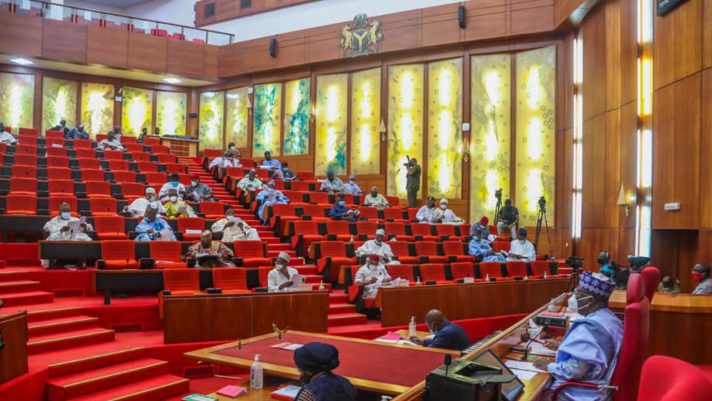When the 10th Senate of the Federal Republic of Nigeria chose to step down the proposed amendment to Section 230 of the Criminal Code Act (HB 2038), it did more than delay a legislative process, it demonstrated rare courage and sensitivity. The Senate’s decision to pause and reflect showed commendable prudence and awareness of the far-reaching implications this clause holds for women’s lives, health, and rights.
In a country where legislative decisions can shape the fate of millions, taking time to listen, consult, and review is not a weakness, it is leadership. The Senate’s restraint affirms that reproductive health issues demand evidence-based deliberation, not rushed legislation driven by moral panic or political expediency.
Section 230 of Nigeria’s Criminal Code currently states that anyone who “unlawfully supplies or procures anything intended to be used to procure a miscarriage” is guilty of a felony and liable to three years’ imprisonment.
The proposed amendment under HB 2038, passed by the House of Representatives, seeks to increase this penalty from three to five years. However, during Senate debate, some lawmakers referenced an even stiffer sentence, up to ten years, though such wording does not appear in the House version.
This situation, coupled with the absence of a clear legal definition of what constitutes an “unlawful abortion,” rightly prompted the Senate to step down the clause for further scrutiny. The ambiguity is not a small matter it could criminalise life-saving medical care and put both patients and doctors at grave risk.
The phrase “unlawfully used” in the current law is dangerously vague. Without clear boundaries, it leaves room for misinterpretation by law enforcement, health professionals, and the courts. What happens in cases of rape, incest, severe foetal anomaly, or when a woman’s life or health is in danger? Should a doctor saving a woman’s life face jail time?
Such legal uncertainty does not only endanger women; it paralyses healthcare providers. Many doctors have admitted they fear prosecution if they act to save a patient’s life in emergencies involving pregnancy complications.
According to national reports, about 4.6% of Nigerian women of reproductive age undergo induced abortions every year. Tragically, around 63% of these are unsafe, contributing to an estimated 6,000 preventable maternal deaths annually, that’s roughly ten Nigerian women dying every day from complications that could have been prevented with access to safe care.
Criminalising abortion does not eliminate it; it merely drives it underground. The real consequence of harsh or unclear laws is not moral order, it is silent death, stigma, and suffering, especially among the poor and young.
Nigeria’s own laws already recognise that doctors can act “in good faith and with reasonable care and skill” to save a mother’s life (Section 297 of the Criminal Code). The Federal Ministry of Health also issued National Guidelines on Safe Termination of Pregnancy for Legal Indications in 2018, providing medical clarity for such cases.
Any reform to Section 230 must align with these standards, not contradict them. The goal should be coherence, compassion, and care not confusion and criminalisation.
While accountability for those who misuse abortion drugs or instruments is necessary, increasing penalties from three to five, or ten, years will not save lives. It will only discourage healthcare providers from offering emergency treatment when it is most needed.
If our laws must punish, let them punish criminal negligence or exploitation, not medical professionals who act in good faith to save lives.
Reproductive health is not a matter for lawmakers alone. It is a social, moral, and medical issue that affects families, communities, and national wellbeing. Any reform of Section 230 must therefore involve broad consultation with: Women’s rights groups and community representatives, Professional bodies such as the Nigerian Medical Association (NMA) and SOGON, Legal and medical experts, Faith and traditional leaders, Survivors and families who have lived through the tragedies of unsafe abortion. Inclusive dialogue ensures that laws reflect lived realities, not abstract ideology.
The Senate now stands at a crucial crossroads. This is a moment not for fear, but for fairness; not for stigma, but for science. Nigeria has an opportunity to create a law that protects women, respects healthcare workers, and upholds our collective commitment to justice, dignity, and public health.
Restrictive or unclear laws don’t save lives, they cost them. Every delay in reform translates to more women lost to preventable causes. The goal should not be punishment; it should be protection.
The Senate’s decision to step back is not a setback; it is a step forward for democracy and human rights. By choosing reflection over haste, lawmakers have opened the door to crafting legislation that truly safeguards Nigerian women. The reform of Section 230 should not be about moral judgment it should be about saving lives.
Dr. Akiyode-Afolabi is an Advocate, human rights attorney, activist, Gender and the law expert at the University of Lagos.






